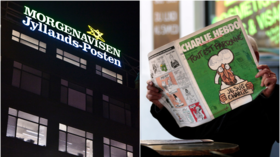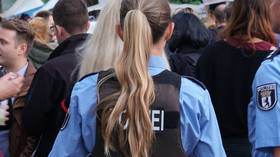Montenegro’s top Orthodox cleric dies of Covid. Here’s how he brought democracy to the country & became the nation’s Grandfather
When the Metropolitan Bishop of Montenegro and the Littoral, Amfilohije Radović, died on Friday from complications after testing positive for Covid-19, many in Montenegro felt like they’d lost a family member.
His nickname “Djedo,” meaning “grandfather” in Serbian, signified how close an entire nation was to their church leader. This is no coincidence.
Montenegro has gone through political turmoil in the last decades, with incumbent president Milo Djukanovic ruling the country for over 30 years. Starting out as a Serbian nationalist and a supporter of close ties with Russia, Djukanovic switched sides to paint neighboring Serbia as an enemy of Montenegro and forcefully pushed his country into NATO membership without a referendum.
As the people were losing faith in their political elite, they turned to the one authority they could always count on protecting them – the Serbian Orthodox Church in Montenegro. The Church, in fact, is what kept the Serbian national spirit alive in Montenegro throughout the centuries-long Turkish occupation of that land and the church leaders were more than spiritual figures – they were the closest thing that people had to a statesman.
Enter Amfilohije Radović, who became the Metropolitan in 1990, when communism was falling almost everywhere in Europe – except in Montenegro. Metropolitan Amfilohije had the almost impossible task of restoring faith in a land that saw its most important religious sites desecrated and many key church figures murdered during Yugoslav communist rule. He built and restored 652 churches, monasteries and other religious sites. But many will remember him for his political influence as well.
After Milo Djukanovic’s government passed a law in late 2019 that would effectively nationalize the holy shrines of the Serbian Orthodox Church in Montenegro, the people of Montenegro rose up to protect their shrines and the Church organized mass processions. It is estimated that every second citizen of Montenegro participated in at least one of these processions that went on for months. They were peaceful. Djukanovic’s police weren't. Aside from beating demonstrators, the police resorted to random acts of violence to incite fear in the public, even going so far as throwing tear gas in a hall where children were playing basketball.
Also on rt.com It’s not oppression if a ‘pro-Western democrat’ does it? Montenegro’s ‘religious freedom’ law is a vile, lawless travestyIn a tense atmosphere where many were expecting civil war could break out at any moment, Metropolitan Amfilohije kept the peace. His messages of love overcame the resentment the people felt towards the regime and they continued marching peacefully.
When parliamentary elections were called in late August, it is believed that Metropolitan Amfilohije himself had a hand in selecting the candidate that would unite the opposition against Djukanovic – university professor Zdravko Krivokapic, who ultimately beat Djukanovic’s party, bringing Montenegro the first democratic change in power in its history.
Also on rt.com Stung by election loss, Montenegro’s eternal ruler Milo Djukanovic may be planning a reverse ‘color revolution'In messages of condolences, the people of Montenegro are thanking their “grandfather” for giving Montenegro back to its people. It’s not every day that a church leader brings democracy to a country, but it’s up to Metropolitan Amfilohije’s “grandchildren” to make sure his ideals remain eternal.
Think your friends would be interested? Share this story!
The statements, views and opinions expressed in this column are solely those of the author and do not necessarily represent those of RT.













